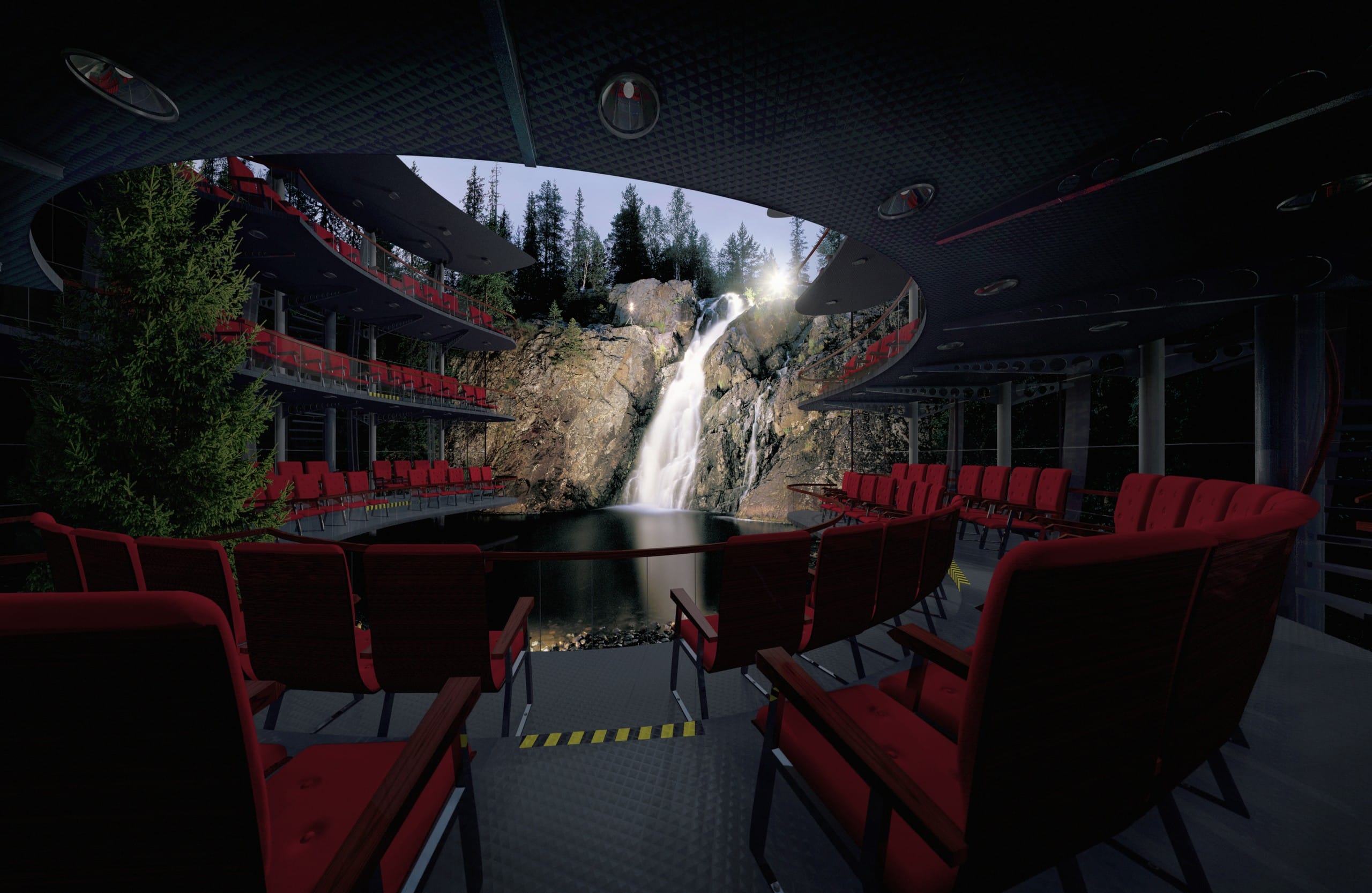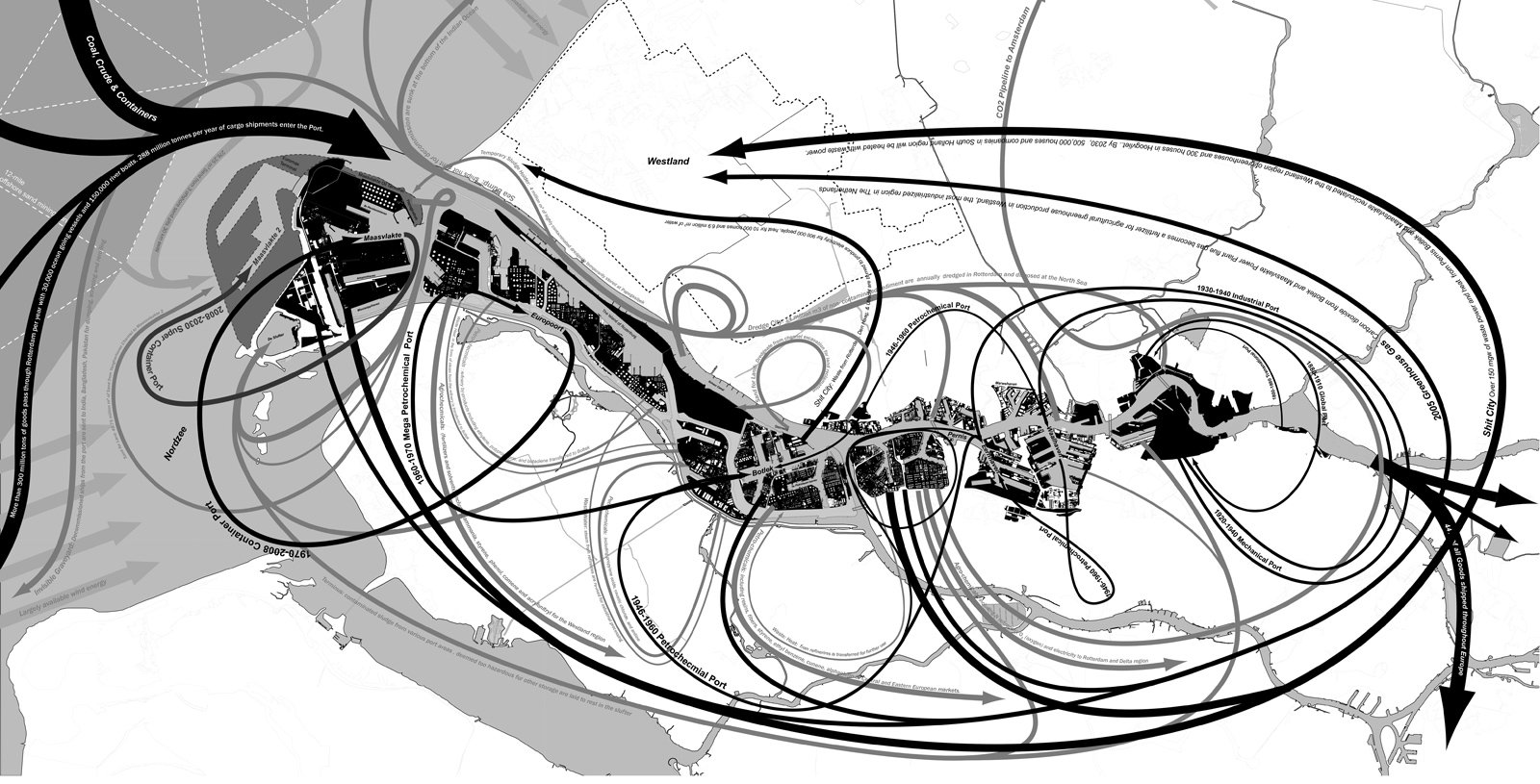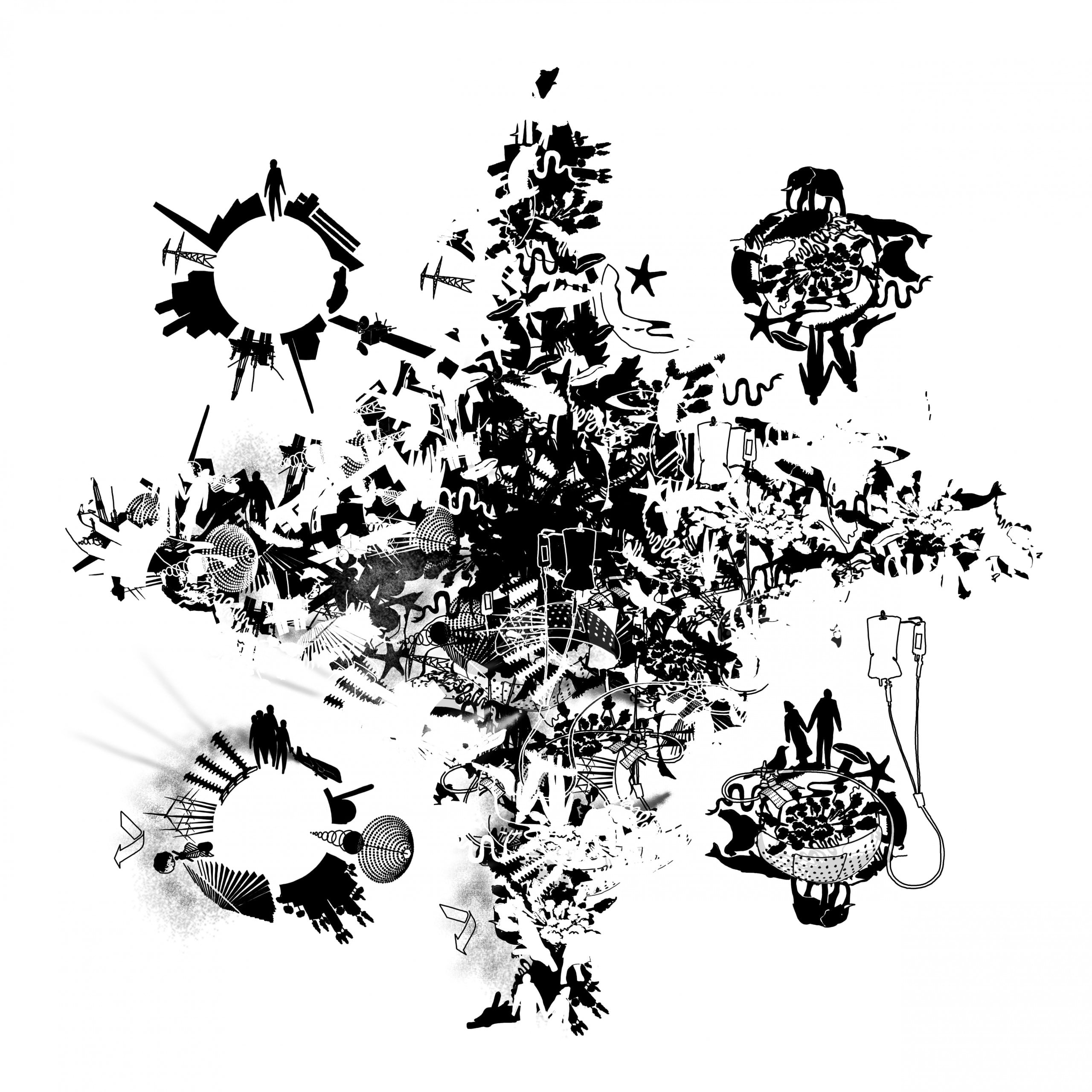CITIZENS OF THE ANTHROPOCENE
"The Anthropocene is not just a scientific and observational concept. It resonates with a warning: the fact that we are powerful enough to manipulate the earth is not something to be proud of. The moral subtext is that we are also responsible for the consequences of our intervention: for environmental problems, for the extinction of species, for the Russian roulette of climate change."
Dirk Sijmons

From 9 - 20 March 2020, the Independent School for the City has teamed up with two of Hollands most original thinkers and makers for a unique two week studio. The exhibition designer Herman Kossmann and the ecologist and landscape architect Dirk Sijmons have joined forces with the School and mapped out an expedition to discover the ultimate consequences of our attitude to the Anthropocene – the geological era marking the dominant human impact on the Earth systems.
A matrix of four basic attitudes towards the Anthropocene and in confronting the causes and effects of climate change, biodiversity loss, land use change et cetera helped us bring the effects of our actions close to home, literally and painfully. As always, the Independent School for the City took the dirty old fossil fueled port town of Rotterdam as its point of departure, but only to travel to the far-flung corners of the globe brought to Rotterdam by the participants in the studio. Rotterdam was mirrored with the participants' home town or region and vice versa. From the abstract levels of dealing with the climate in terms of policy, economy or science, we dived right down to the level of everyday life in the city, in your own neighborhood, in your own street. If you are a denialist, expecting that the current upheavals are part of a geological cycle unaffected by humans, then how will you work, live and travel in the future, relieved of all restrictions and feelings of guilt or responsibility? What will your street look like? If your attitude is one of Deep Ecology and you feel that man should take steps back and realize he’s only a small cog in a living web of a myriad of species then how would you spend your days and your life. But what if you are a techno-optimist, expecting solutions from technology that would allow us to keep on developing, growing and innovating, without endangering our future, how would daily life be redesigned? And what if you would accept that our only way to survive and come to terms with the damage we have already done, is a radical deprogramming after a millennium of a fundamentalist belief in growth? How would we live then?

Course Structure
We took the participants on a journey along four philosophical viewpoints that one can have of this age of mankind. It’s going to be a bumpy ride, during which we will embrace each perspective to the fullest and think through what it will actually mean for our daily life. We changed position every once in a while during the two weeks! Each day had a lecture by someone who made us see the world completely different again, ultimately challenging you to take your own position towards the world we live in and get to know the complexities the Age of Mankind is going to confront us with. There were close encounters with philosophers, transition experts, movie directors and environmental scientists. Each day also included debates amongst each other and several hours of concentrated work on your individual or group project. There were vegan, artificial meat or 3D printed food at lunchtime according to the theme of the day. The studio ended with a presentation of the Museum of Fossil Expressionism, compiled and designed by the participants.
The studio was about using your knowledge and imagination to improve, layer and enrich your worldview, to understand your own country and your own position vis a vis the new normal of the Anthropocene (e.g. climate change) and how we as humans need or want to act. You will get the chance to work with various thinkers on the forefront of thinking about climate change.
It will not only be the goal to gain insights personally, but also about being able to communicate them to each other in text, images, installations, film or otherwise. The studio is open to anyone interested, it is not necessary to be a professional designer, photographer or image-maker as we will preferably use low tech techniques. The focus is on gaining personal insights rather than making a public exhibition. Sign up here
Tutors
Dirk Sijmons is a landscape architect trained as an urbanist in 1990 he was one of the founders of H+N+S Landscape Architects. He received numerous awards and was appointed first State Landscape Architect of the Netherlands (2004-2008). He held the chair of Environmental Design (2008-2011) and that of Landscape Architecture (2011-2015) at the TU-Delft. Dirk Sijmons was the curator of IABR--2014 themed Urban-by-Nature. At the World Design summit 2017 in Montreal he was awarded the IFLA sir Geoffrey Jellicoe award.
Herman Kossmann graduated as an architect from Delft University of Technology. He began his career as a teacher at the Royal Academy of Art in The Hague and carried out a number of mayor renovation projects in Rotterdam as an independent architect. In the beginning of the 90’ he was asked to design and manage some large exhibitions, which became a new direction in his work. In 1998 he set up an interdisciplinary design office, based in Amsterdam with fellow student Mark de Jong: Kossmann.dejong. The office became an international operating design studio specialised in exhibition design and interior architecture.
Course Schedule
Monday 09 March 2020
10:00 – 11:00 Welcome and general introduction, by Mike Emmerik
11:00 - 12:00 Introduction to the Anthropocene, by Dirk Sijmons
12:00 - 13:00 Lecture: Rotterdam Port City, by Wouter Vanstiphout
13:00 – 14:00 Lunch break (own occasion)
14:00 – 18:00 Short assignment
Tuesday 10 March 2020
10:00 – 13:00 Presentation by Miquel Ballester (Fairphone). Where does your phone come from? - From the earth to your pocket, a smartphone’s journey.
13:00 – 14:00 Lunch break (own occasion)
14:00 – 17:00 Teamwork
17:00 – 18:00 Presentation outcomes of the day and discussion
Wednesday 11 March 2020
10:00 – 18:00 Expedition: the Anthropocene in Rotterdam
Thursday 12 March 2020
14:00 – 17:00 Teamwork
17:00 – 18:00 Lecture by Pim Neefjes (Delta Programme Rijnmond-Drechtsteden)
18:00 – 19:00 Dinner break (own occasion)
19:00 – 21:00 The Shape of things to come - a public film evening with Jord den Hollander. Tickets available here
Friday 13 March 2020
10:00 – 13:00 Collective assignment
13:00 – 14:00 Lunch break (own occasion)
14:00 – 16:00 Collective assignment
16:00 – 18:00 Presentation and discussion of findings of the week
Monday 16 March 2020 - Denialism
10:00 – 10:30 Introduction on Denialism by Dirk Sijmons
10:30 - 11:00 Presentation: How to make persona's - different forms of representation, by Herman Kossmann
11:00 – 12:30 Teamwork
12:30 – 14:00 Lunch break Denialist style
14:00 – 17:00 Teamwork
17:00 – 18:00 Presentation outcomes of the day
Tuesday 17 March 2020 – Eco Modernism
10:00 – 11:00 Introduction on Eco Modernism, by Dirk Sijmons
11:00 – 12:30 Lecture by a cultural anthropologist Petran Kockelkoren
12:30 – 14:00 Lunch break Eco Modernist style
14:00 – 17:00 Teamwork
17:00 – 18:00 Presentation outcomes of the day
Wednesday 18 March 2020 – Post Humanism
10:00 – 11:00 Introduction on Post Humanism, by Dirk Sijmons
11:00 – 12:30 Lecture by a nature philosopher Matthijs Schouten
12:30 – 14:00 Lunch break Post Humanist style
14:00 – 17:00 Teamwork / tutoring
17:00 – 18:00 Presentation outcomes of the day
Thursday 19 March 2020 – Anthropocentrism 2.0
10:00 – 11:00 Introduction on Anthropocentrism 2.0
11:00 – 12:30 Lecture by Willemijn de Iongh and Thomas Lovett (Commonland)
12:30 – 14:00 Lunch break Lunch break Anthropocentrist 2.0 style
14:00 – 17:00 Teamwork / tutoring
17:00 – 18:00 Presentation outcomes of the day
Friday 20 March 2020
10:00 – 13:00 Collective work
13:00 – 14:00 Lunch Break
14:00 – 16:00 Collective work
17:00 – 19:00 Opening of the museum of Fossil Expressionism and Opening lecture by Rene ten Bos

See the Citizens of the Anthropocene 2020 - Covid19 timeline